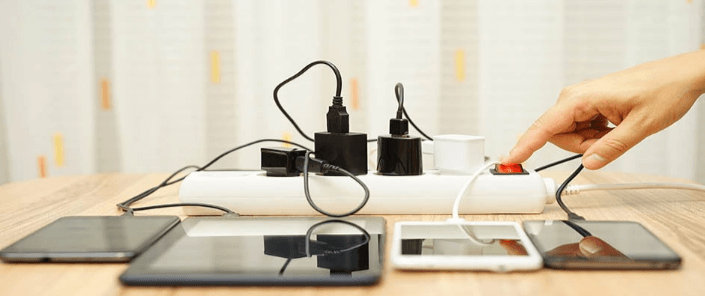
Top Electrical Safety Tips for Homeowners
Introduction
Electricity powers our modern lives, bringing comfort, convenience, and efficiency to our homes. However, with this incredible resource comes significant responsibility. Electrical hazards are a leading cause of home fires, injuries, and even fatalities. As a homeowner, understanding and practicing electrical safety is paramount to ensuring the well-being of your household. This article delves into the top electrical safety tips for homeowners, providing practical advice and expert insights to help you maintain a safe living environment.
Understanding the Importance of Electrical Safety
Electrical safety isn’t just about preventing fires; it’s about protecting your family from potential hazards that can result from faulty wiring, overloaded circuits, and improper use of electrical appliances. Understanding the basic principles of electrical safety can help homeowners identify risks and take proactive measures to prevent accidents.
Electrical safety is essential for everyone, whether you’re living in an older home with outdated wiring or a new construction with the latest electrical systems. Even minor electrical mishaps can lead to significant damage or injury if not addressed promptly. By being vigilant and informed, homeowners can mitigate these risks effectively.
Inspecting Your Home’s Electrical System Regularly
One of the most critical aspects of electrical safety is conducting regular inspections of your home’s electrical system. This involves checking for any signs of wear and tear, such as frayed wires, loose outlets, or flickering lights. Regular inspections help in identifying potential issues before they become serious problems.
Homeowners should also be aware of the age of their electrical systems. Older homes may have outdated wiring that doesn’t meet current safety standards, increasing the risk of electrical fires. If your home is more than 30 years old, it’s advisable to have a licensed electrician perform a thorough inspection to ensure everything is up to code.
The Role of Circuit Breakers and Fuses
Circuit breakers and fuses are your home’s first line of defense against electrical overloads. They are designed to shut off the flow of electricity when the system is overloaded or a short circuit occurs. Understanding how these devices work and knowing how to reset them safely is crucial for every homeowner.
However, if your circuit breaker frequently trips, it could be a sign of an underlying issue, such as faulty wiring or an overloaded circuit. In such cases, it’s important not to ignore the problem but to consult with a professional electrician to diagnose and fix the issue. Repeated tripping can be dangerous, as it indicates that your electrical system is being pushed beyond its safe limits.
Safely Using Electrical Appliances
Electrical appliances are a common source of electrical hazards in the home. Misuse, poor maintenance, or using damaged appliances can lead to electric shocks or fires. To ensure safety, always follow the manufacturer’s instructions when using electrical appliances.
Regularly check your appliances for signs of wear, such as frayed cords, and replace them if necessary. Avoid using appliances with damaged cords, as they can pose a serious risk of electrical shock. Additionally, make sure to unplug appliances when they are not in use, especially those that generate heat, such as toasters and irons.
Preventing Electrical Overloads
Overloading circuits is a common cause of electrical fires in homes. This often happens when too many appliances are plugged into a single outlet or extension cord. To prevent this, distribute electrical loads across multiple outlets and avoid using too many high-wattage appliances simultaneously.
If you find yourself relying heavily on extension cords, it might be time to consider adding more outlets to your home. An experienced electrician can install additional outlets and help you better distribute the electrical load, reducing the risk of overloads.
Understanding Ground Fault Circuit Interrupters (GFCIs)
Ground Fault Circuit Interrupters (GFCIs) are special outlets designed to protect against electric shocks. They work by shutting off the electrical current if they detect an imbalance in the flow of electricity, which can occur when electricity escapes to the ground. GFCIs are typically required in areas where water and electricity are in close proximity, such as bathrooms, kitchens, and outdoor areas.
As a homeowner, it’s important to ensure that GFCIs are installed in these critical areas. If your home doesn’t have GFCIs installed in wet or damp locations, consider hiring an electrician to install them. Testing your GFCIs regularly by pressing the “test” button and ensuring they trip correctly can also help maintain safety.
Childproofing Your Electrical Outlets
If you have young children, childproofing your electrical outlets is a crucial step in preventing electrical accidents. Curious toddlers are often tempted to stick fingers or objects into outlets, which can result in severe injuries or even fatalities.
One effective way to childproof your home is by using tamper-resistant (TR) outlets, which have built-in safety mechanisms to prevent foreign objects from being inserted. Alternatively, you can use plastic outlet covers, though these can be easily removed by determined children. TR outlets provide a more permanent and reliable solution.
Proper Use of Extension Cords
Extension cords are handy for temporary use, but they should not be relied upon as a permanent solution for powering devices. Using extension cords incorrectly can lead to overheating and electrical fires.
When using extension cords, always ensure they are rated for the intended use. Avoid running them under rugs or furniture, as this can cause the cord to overheat. Additionally, never daisy-chain extension cords together, as this can increase the risk of overloading the circuit.
Installing Smoke Detectors and Carbon Monoxide Detectors
While not directly related to electrical safety, installing smoke detectors and carbon monoxide detectors is an essential part of keeping your home safe from electrical fires and other hazards. These devices provide early warning signs of potential dangers, giving you and your family time to evacuate and call for help.
Ensure that smoke detectors are installed on every level of your home, especially near bedrooms. Test them monthly and replace the batteries at least once a year. Carbon monoxide detectors are equally important, especially if you have gas appliances. They should be installed in areas where gas leaks are most likely to occur, such as near gas stoves, furnaces, and water heaters.
Handling Electrical Repairs Safely
Electrical repairs should always be handled by a qualified professional. Attempting to fix electrical issues yourself without proper knowledge and experience can be extremely dangerous. Even seemingly simple tasks, like replacing a light switch, can lead to severe injury if not done correctly.
If you notice any electrical issues in your home, such as sparks, burning smells, or frequent breaker trips, it’s best to contact a licensed electrician to assess and repair the problem. DIY electrical work not only puts your safety at risk but can also void home insurance policies if not done to code.
Electrical Safety Outdoors
Electrical safety isn’t just limited to the inside of your home; it’s also important to be mindful of outdoor electrical hazards. Outdoor outlets should be equipped with weatherproof covers to protect them from moisture. When using outdoor electrical devices, such as lawnmowers or power tools, make sure they are plugged into outlets with GFCI protection.
Additionally, be cautious when using ladders or trimming trees near power lines. Always maintain a safe distance from overhead power lines and never attempt to touch them. If you’re planning any major landscaping or construction work, it’s a good idea to contact your local utility company to identify any underground lines before digging.
The Dangers of Water and Electricity
Water and electricity are a deadly combination. It’s essential to keep electrical devices and outlets away from water sources, such as sinks, bathtubs, and pools. Never use electrical appliances with wet hands, and ensure that any electrical installations in wet areas, like bathrooms and kitchens, meet current safety standards.
If you live in a flood-prone area, consider taking additional precautions, such as elevating electrical outlets and appliances above potential flood levels. In the event of flooding, avoid contact with any electrical equipment until a professional has deemed it safe.
Educating Your Family About Electrical Safety
Education is key to preventing electrical accidents. As a homeowner, it’s your responsibility to educate your family about the dangers of electricity and the importance of safety practices. Teach children not to play with electrical outlets or appliances and explain the hazards of water and electricity.
It’s also a good idea to establish an emergency plan for your household. Make sure everyone knows what to do in case of an electrical fire, including how to use a fire extinguisher and where to go if evacuation is necessary.
Maintaining Electrical Appliances
Proper maintenance of electrical appliances is essential for preventing electrical hazards. Regularly clean and inspect appliances to ensure they are in good working order. Replace any damaged cords or parts and avoid using appliances that show signs of wear.
For large appliances, such as refrigerators and washing machines, ensure they are plugged directly into a wall outlet rather than an extension cord. Large appliances draw significant amounts of electricity and can easily overload an extension cord, leading to potential fire hazards.
Safe Use of Portable Heaters and Fans
Portable heaters and fans are common in many homes, especially during the winter and summer months. However, they can pose significant electrical hazards if not used properly. Always place portable heaters on a flat, stable surface and keep them away from flammable materials, such as curtains and bedding.
Fans should be inspected regularly to ensure they are functioning correctly and that the cords are in good condition. Avoid using damaged fans, as they can cause electrical shocks or fires.
Recognizing Electrical Warning Signs
Being able to recognize the warning signs of electrical problems can help prevent accidents before they occur. Common warning signs include flickering lights, outlets that are warm to the touch, burning smells, and frequent circuit breaker trips.
If you notice any of these signs, it’s crucial to take immediate action by unplugging any affected devices and contacting an electrician. Ignoring these warning signs can lead to more severe problems, including electrical fires.
The Importance of Professional Electrical Inspections
Professional electrical inspections are vital for maintaining the safety of your home. A licensed electrician can identify potential hazards that may not be visible to the untrained eye, such as faulty wiring, overloaded circuits, and outdated systems.
Scheduling regular inspections, especially in older homes, can help you catch problems early and ensure that your electrical system meets current safety standards. This is particularly important if you are planning to buy or sell a home, as a thorough inspection can prevent costly repairs or dangerous situations down the line.
Conclusion
Electrical safety is an essential aspect of homeownership that should never be overlooked. By following these top electrical safety tips for homeowners, you can significantly reduce the risk of electrical hazards in your home. Regular inspections, proper use of appliances, and staying informed about potential dangers are key to maintaining a safe living environment. Remember, when it comes to electricity, it’s always better to be safe than sorry.
FAQs
How often should I inspect my home’s electrical system?
It’s recommended to have your home’s electrical system inspected by a licensed electrician every 3-5 years, or more frequently if you live in an older home or notice any warning signs.
What should I do if my circuit breaker keeps tripping?
If your circuit breaker frequently trips, it could be a sign of an overloaded circuit or faulty wiring. It’s important to consult with a professional electrician to diagnose and fix the issue.
Are extension cords safe for long-term use?
Extension cords are designed for temporary use only. For long-term solutions, it’s better to have additional outlets installed by an electrician to avoid the risks associated with overloaded circuits.
Can I handle electrical repairs myself?
Electrical repairs should always be performed by a qualified professional. Attempting to fix electrical issues yourself without proper knowledge and experience can be extremely dangerous.
What are GFCIs, and where should they be installed?
GFCIs (Ground Fault Circuit Interrupters) are outlets designed to protect against electric shocks by shutting off the electrical current when an imbalance is detected. They should be installed in areas where water and electricity are in close proximity, such as bathrooms, kitchens, and outdoor areas.





